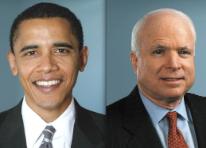This year, American children born after the fall of the Berlin Wall, literally a generation ago, will vote in a presidential election for the first time. They will join a group of voters born and raised during the long struggle against communism and now entering retirement. On Feb. 12 of this year, the nation's first baby boomer -- born on January 1, 1946 -- collected her first social security check. In 2008, the long shadow cast by the Cold War will finally start to recede. Both baby boomers and so-called "millennials" seek a president that can address the most obvious causes of national anxiety, including the ongoing wars in Iraq and Afghanistan, the prospect of a generations-long struggle against global terrorism, and growing economic concern. But they need and deserve something more: They need a President who can pivot from the legacy of the Cold War to meet the security challenges of today and tomorrow. America must pivot away from many old ways of thinking: from a vision of perpetual American primacy to the reality that America's military and economic power, though dominant, is often not decisive; from a focus on nation-state power to an understanding of the diffusion of power to non-state actors, both good and bad; and from an understanding of traditional national security to one of transnational security, in which danger still can come from hostile states, but is more likely to come from networks of extremists or environmental threats like climate change.
U.S. Foreign Policy and the Next President: America at a Pivot Point

